
Simultaneously nihilistic and heartening, Ward No. 6 is based on a story by Chekov, in which a psychiatric doctor becomes a patient in his own asylum. Updated to contemporary Russia, the film is a cocktail of anxieties and riddles, showcasing how easy it is to become what we fear most.
You May Also Like

Manchuria 1941: Caught sleeping with his Japanese major’s mistress, Manchurian collaborator Tung Fei (Jackson Liu Hsiu-hsien) fatally shoots the man and flees for his life. Overcome by fatigue after hours of travel on horseback, Tung eventually awakens to find himself under the care of hunter Suen (Dick Wei) and his daughter, Ironic (Hsu).

Bruce Lee, My Brother is an action-dramatic biopic of the eponymous martial arts legend as told by his younger brother, Robert Lee. It revolves around Bruce Lee’s life as a rebellious adolescent in Hong Kong before he sets off for the USA and conquers the world at the age of 18 with only US$100 in his pocket.
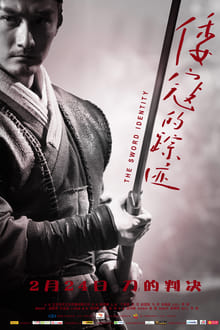
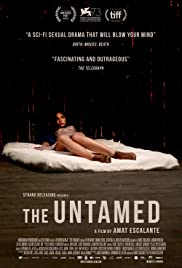
Hypnotic, perturbing, and utterly enthralling, The Untamed combines a suspenseful family drama with truly bizarre elements of science fiction and horror. Desperate to flee but consumed by fear, Alejandra, a young mother and working housewife, is trapped in a violent and unsatisfying relationship with her husband, Angel. She leans on her brother Fabián for support, but he has secrets of his own. All of their lives are turned upside down by the arrival of the mysterious Veronica. She convinces them that in the nearby woods, inside an isolated cabin, dwells something not of this world that could be the answer to all of their problems… something whose force they cannot resist and with whom they must make peace or suffer its wrath.

“Nowhere” is a drama about Adrian and Sebastian, a Colombia couple living together in New York City. When Sebastian is faced with immigration complications, Adrian must learn to overcome his fear of rejection from his family back in Colombia in order to save his relationship with Sebastian.
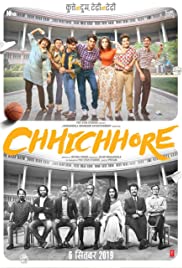
Following a group of friends from university as they progress into middle-age life and go their own separate ways.

A drama directed by Gustav Ehmck, a teenager lays a small bundle on the tracks, but before the oncoming train can cross it, an older woman saves the baby from certain death. She keeps little Sophie with her and raises her to be a well-behaved girl.
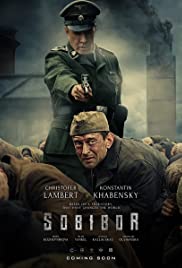
The film is based on a real story that happened in 1943 in the Sobibor concentration camp in German-occupied Poland. The main character of the movie is the Soviet-Jewish soldier Alexander Pechersky, who at that time was serving in the Red Army as a lieutenant. In October 1943, he was captured by the Nazis and deported to the Sobibor concentration camp, where Jews were being exterminated in gas chambers. But, in just 3 weeks, Alexander was able to plan an international uprising of prisoners from Poland and Western Europe. This uprising resulted in being the only successful one throughout the war, which led to the largest escape of prisoners from a Nazi concentration camp.

The film is based on the popular Dutch childrens book by Chris van Abkoude. In a Dutch port in 1921 lives a 10-year-old orphan boy known to everyone simply as Little Crumb. His poverty-stricken mother Lize van Dien filled with shame was forced to turn him over to Mrs. Koster soon after he was born. Foster mother Mrs. Koster, who has cared for him since he was a baby, is very poor too, unable to support him by herself and proves to be a cruel taskmaster who insists Crumb bring her money before shell feed him. Somehow he must earn his keep out on the streets and can only go home after he has earned enough money. Crumb becomes an urchin stealing from the streets barrows and the shops to stay alive, sleeping in churches or huddled in doorways. Sometimes he has to run off from the police and he has earned the enmity of the most grownups around him.

The reign of England’s King John is threatened by Philip of France who demands that John’s nephew Arthur be placed on the throne. Pragmatic and decisive, King John moves to plactate the French, but there are others who seek disputre his authority.
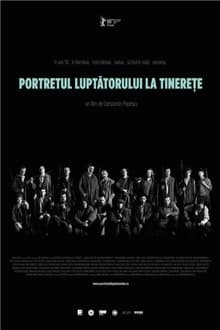
When the Soviet Army marched into Romania in 1944, a part of the Romanian population went “into the mountains” – a diverse assortment of nationalists and fascists, liberals, apolitical farmers and members of the middle-class, who were affected by the Communists’ expropriations. Over a thousand armed resistance groups took refuge in the inaccessible forests of the Carpathian Mountains where they waited in vain for the support of the Western Allies. One of them was led by Ion Gavrilă-Ogoranu, who managed to remain undetected until 1976 when he was arrested. This film depicts the daily existence of this group. It tells the story of a struggle that became an end in itself, as the enemy was constantly in pursuit and arrest meant torture and often liquidation. Hungry and emotionally withdrawn, the group of young men got entangled in a partisan war that could not be won, lost in the landscape of the South Carpathians, accompanied by a vigilant secret police, the Securitate.